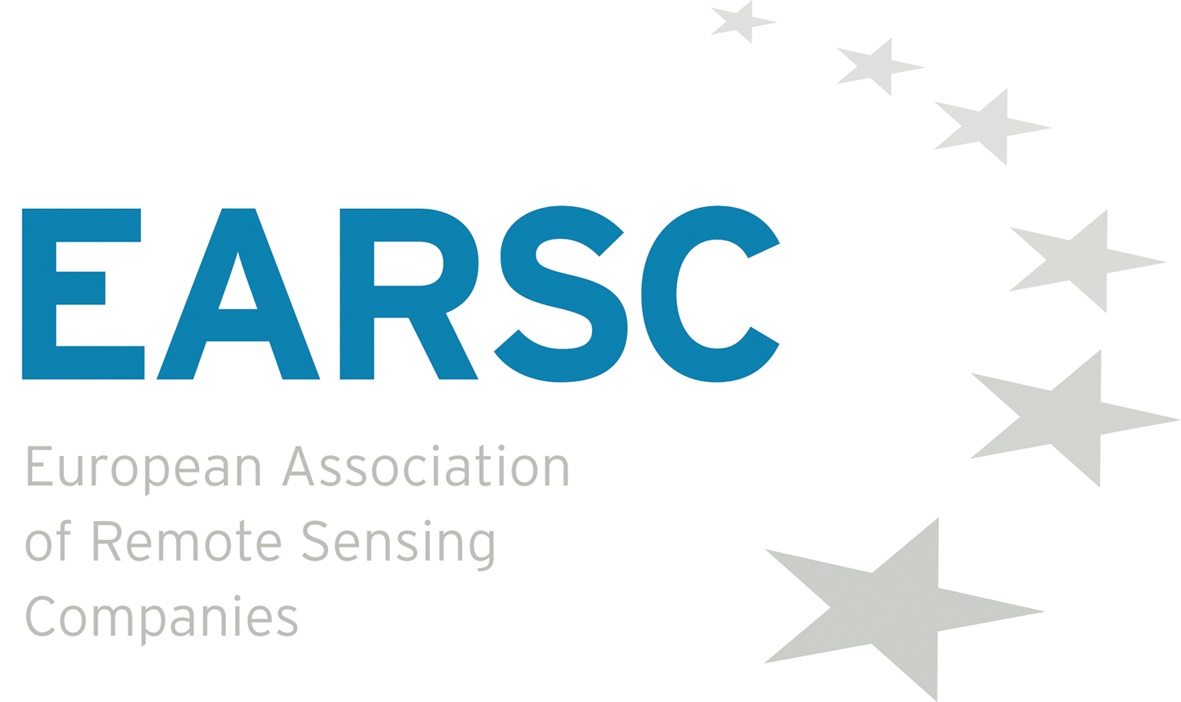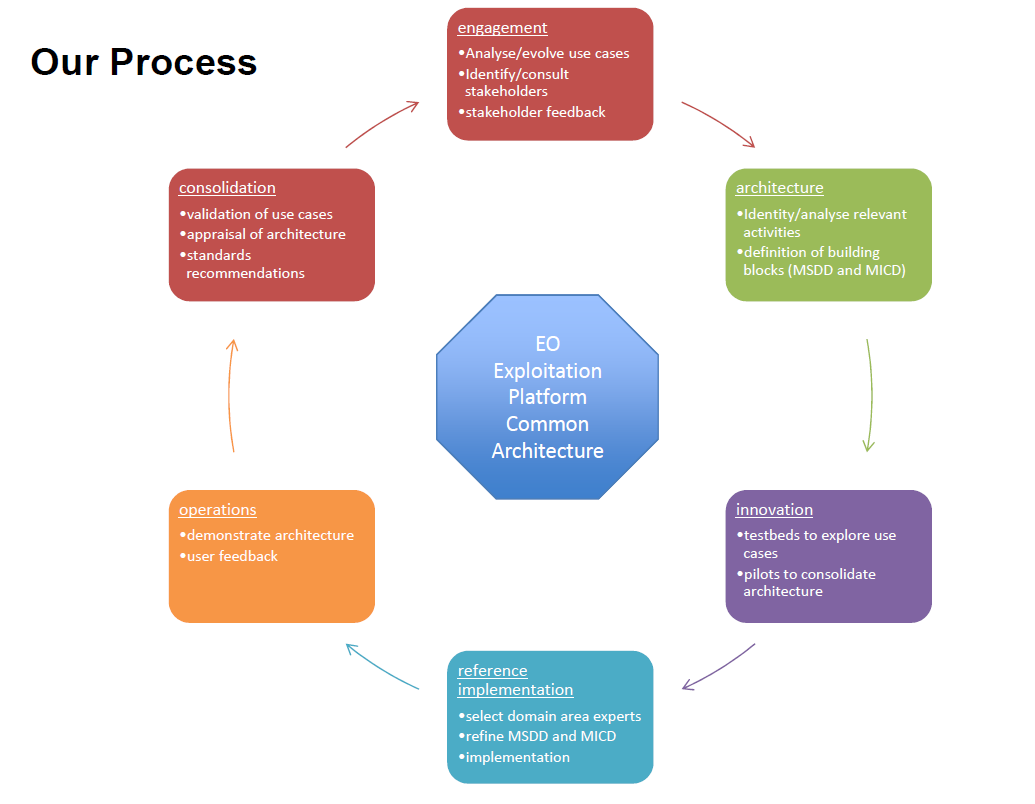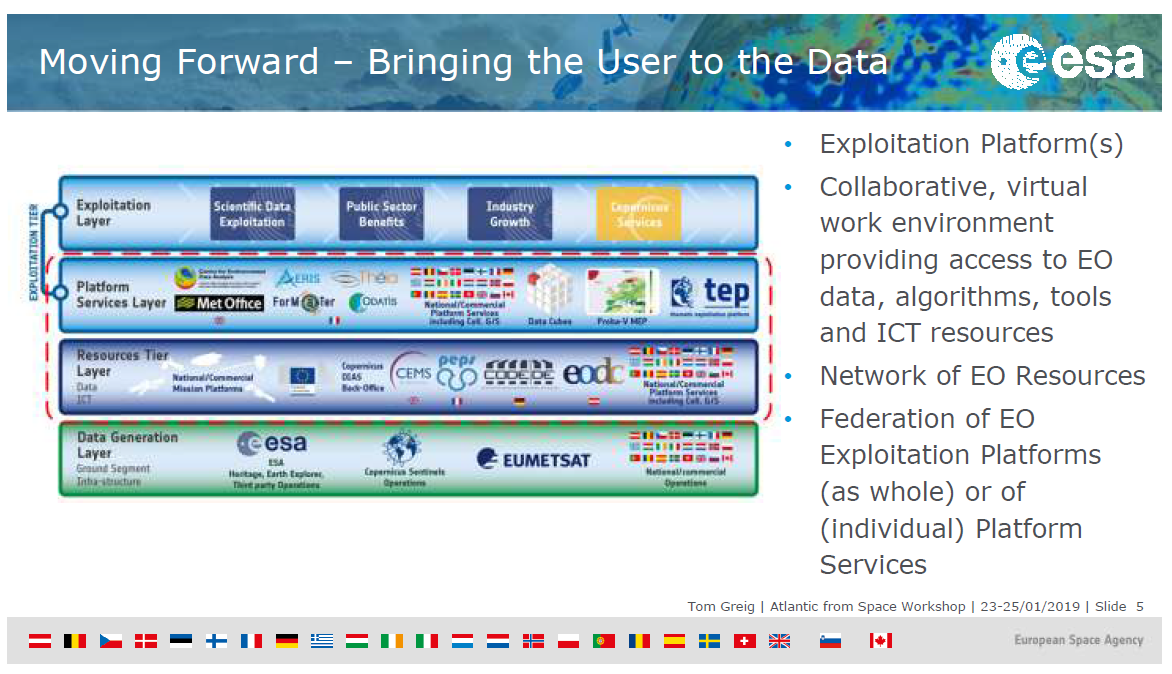Telespazio Vega UK (TVUK) is the prime contractor on the ESA Earth Observation Exploitation Platform Common Architecture project. As part of this contract, ESA is intending to act as a sponsor to the Open Geospatial Consortium (OGC) Interoperability Testbed 15. The intended ITT applies only to the ESA sponsored Earth Observation Process and Application Discovery (EOPAD) Thread.
In line with the principles of OGC, TVUK on behalf of ESA will provide cost-sharing funds to partially offset expenses uniquely associated with the Exploitation Platform Thread.
The intended procurement runs in parallel with OGC Testbed 15 Call For Participation (CFP), which is planned to be published on 7th January 2019. The anticipated start date for the project is 2-4th April 2019 with a Kick-off Workshop Event.
Bidders wishing to participate in other Testbed 15 threads should submit a separate bid directly to OGC’s CFP published on 7th January 2019 at http://bit.ly/Testbed-15. ESA SPONSORED TESTBED 15 CONTEXT
Testbed-15 supports the development of ESA’s Exploitation Platform Common Architecture – building upon the outcomes of Testbed-13/14 in which applications are packaged as Docker containers and deployed/executed through a WPS interface. The focus of this Testbed-15 activity is to define the building blocks through which such applications/services can be exposed through a Catalogue to facilitate user discovery, parameterisation and invocation. The goal is to develop a Data Model and associated interoperable software for user search/discovery with management interfaces for providers to create/update/delete their applications. The outcome will provide recommendations for evolution of the existing standards baseline.
The ITT is published by TVUK Limited on EMITS.
http://emits.sso.esa.int/emits/owa/emits_external.showsum?typ1=8317&user=Anonymous&ctr=
EOEPCA team participated in this workshop by introducing the objectives and goal of the Common Architecture (EOEPCA).
The overall goal of EOEPCA is that the generic architecture and related implementation become the reference architecture and reference implementation for the future exploitation of Earth Observation data in a distributed environment.
Exploitation Platform
“Bringing the User to the Data” - A collaborative, virtual work environment providing access to EO data, algorithms, tools and ICT resources required for their use.
Objectives
- To define, through public discussion and consensus, a generic architecture for EO Exploitation Platforms and its interconnection in a Network
- To promote the adoption of the generic architecture as a Reference Architecture
To implement this architecture, leveraging on free and open source software, as a Reference Implementation reusable by third-parties
To reuse, adapt or define new open standards (mainly OGC) for the interfaces of the architecture
To support the use of the Reference Architecture and the Reference Implementation, by thirdparties, in order to reduce their investment costs in development and operations of EO Exploitations Platforms
To validate, through operational deployment the Reference Implementation, thus validating the Generic Architecture
You can download the presentation here.
EOEPCA team participated in this workshop that assessed the opportunities for Atlantic region focused on EO research and development, downstream activities and ICT evolution.
https://eo4society.esa.int/event/atlantic-from-space/
[EO] Earth Observation, [EP] Exploitation Platforms, [CA] Common Architecture
What is it?
- Open, consensus based architecture for Exploitation Platform within Network of EO Resources
- Interoperability facilitated by use of Open Standards for interfaces/data
- Aims at becoming a Reference Architecture with reusable Reference Implementation
Goal
The overall goal is that the generic architecture and related implementation become the reference architecture and reference implementation for the future exploitation of EO data in a distributed environment.
What are the benefits?
- End-users benefit from a consistent experience
- Experts benefit with ‘portable’ services across platforms
- Ability to access datasets from other domains
- Possibility to build workflows that bring in processing at other facilities
- Platform providers can more easily integrate with other similar platforms
- Re-use of Reference Implementation as building blocks
EOEPCA team provided a presentation that can be found here.


